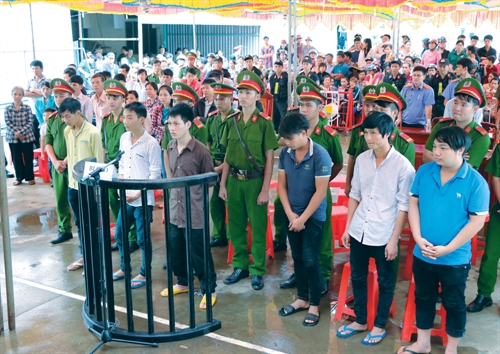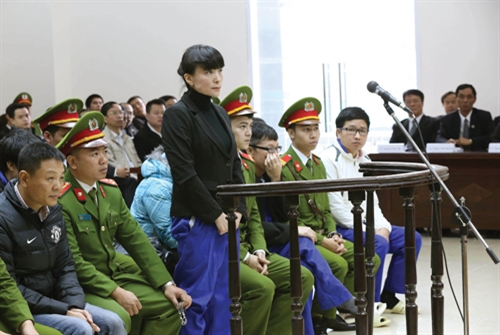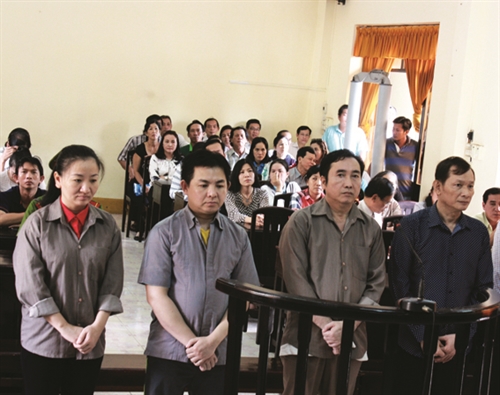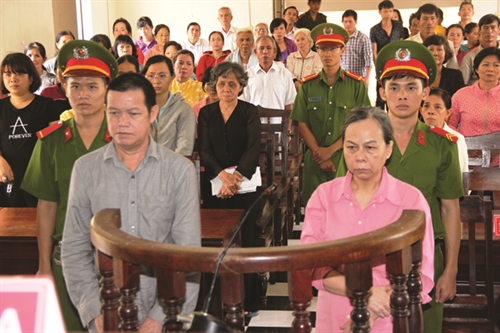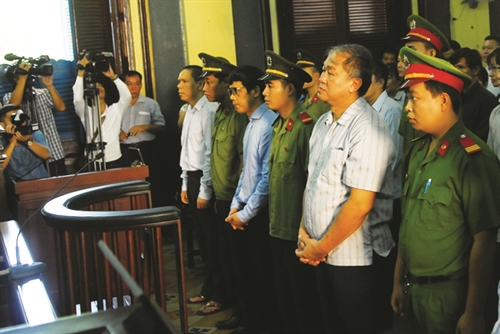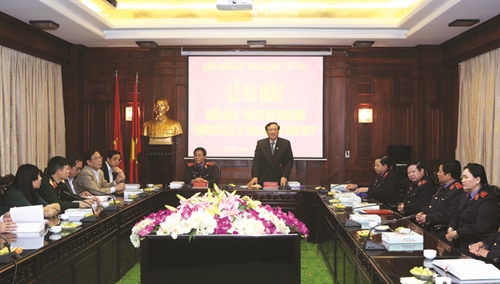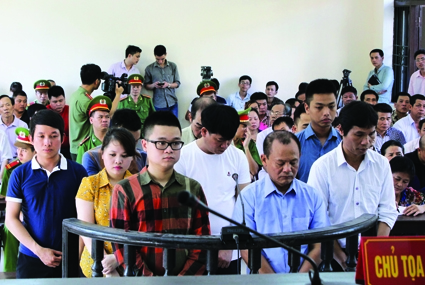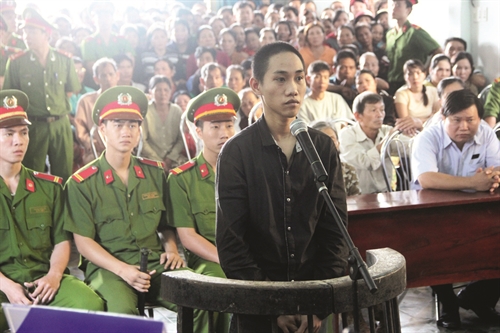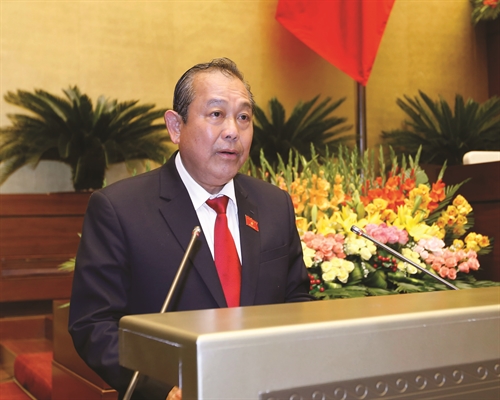Vu Thi Phuong Lan
Hanoi Law University
General jurisdiction
According to Clause 2, Article 464 of the 2015 Civil Procedure Code (the Code), a civil case or matter involving a foreign element is the one in which:
(i) at least one of the parties is a foreign individual, agency or organization;
(ii) the parties are Vietnamese citizens, agencies or organizations but the establishment, change, performance or termination of their civil relation takes place overseas; or,
(iii) the parties are Vietnamese citizens, agencies or organizations but the object of their civil relation is located overseas.
Since it involves a foreign element, a civil case or matter may also be accepted for settlement by a foreign court. The jurisdiction of a foreign court to accept and settle a certain case or matter is determined by a relevant treaty or the procedural law of its country.
As a matter of course, an effective judgment of a court is enforced only in the country of this court. Whether such judgment can be enforced in another country depends on certain conditions determined by such country. This is one of the fundamental principles for operation of the justice system of any country.
Vietnamese civil procedure law is no exception. It specifies civil cases and matters involving foreign elements which have been settled under judgments of foreign courts which may be recognized by Vietnamese courts for enforcement in Vietnam. These cases and matters fall within the general jurisdiction of Vietnamese courts.
The general jurisdiction of Vietnamese courts is provided in Article 469 of the Code in two clauses. Clause 1 specifies cases over which a Vietnamese court has jurisdiction while Clause 2 provides the jurisdiction of a specific Vietnamese court to settle these cases or matters.
Some specific cases involving foreign elements falling under the general jurisdiction of Vietnamese courts are explained and analyzed below.
1. A Vietnamese court has jurisdiction to settle a case in which the respondent is an individual who resides, works or lives for a long term in Vietnam. A respondent here may be either a foreigner or a Vietnamese citizen who resides, works or lives for a long term in Vietnam. It should be noted that the phrase “for a long term” needs to be explained whether it has the same meaning as the term “permanently” used in the 2008 Law on Vietnamese Nationality and the 2014 Law on Entry, Exit, Transit and Residence by Foreigners in Vietnam, when applied to foreigners residing, working or living in Vietnam.
2. A Vietnamese court has jurisdiction to settle a case in which the respondent being an agency or organization has its office located in Vietnam. A respondent here is neither necessarily a foreign agency or organization nor required to have its head office located in Vietnam (as required in Article 410 of the 2004 Code).
A Vietnamese court also has jurisdiction over a case in which the respondent being an agency or organization has a Vietnam-based branch or representative office for cases or matters related to the operation of such branch or representative office. Accordingly, in a dispute between a Vietnamese employee and his employer being a Vietnam-based branch of a foreign company, such employee has to sue such foreign company, but not its branch. This provision follows Point a, Clause 2, Article 410 of the 2004 Code which has put Vietnamese plaintiffs at a disadvantage in these cases.
3. A Vietnamese court has general jurisdiction over a civil case or matter in which the respondent has a property in Vietnam. Other elements, such as the place where the civil relation arises or the citizenship of involved parties, do not matter in this case. For example, when a foreigner wants to sue a Vietnamese for an extra-contractual damage and the Vietnamese respondent has a property in Vietnam, he should file a lawsuit with a Vietnamese court as it falls under the jurisdiction of Vietnamese courts under Point c, Clause 1, Article 464 of the Code.
4. A Vietnamese court has general jurisdiction over a divorce case in which the plaintiff or respondent is a Vietnamese citizen or both are foreigners who permanently reside, work or live in Vietnam. In a divorce case in which either party bears or both parties bear the Vietnamese citizenship but their spousal relation takes place abroad or their property is located abroad, the citizenship element serves as a ground for determining the Vietnamese court’s jurisdiction. In a divorce case in which the involved parties are both foreigners who reside or work for a long term in Vietnam, a Vietnamese court also has the jurisdiction to hear the case. In this case, residence serves as a ground for jurisdiction determination.
5. Besides the above-said elements of office location, citizenship and residence, Article 469 also says that if the place where occurs a legal event on which a civil relation is established, changed or terminated or where the property being the object of a civil relation is located or the work in connection to a civil relation is performed is in the Vietnamese territory, such case also falls under the jurisdiction of Vietnamese courts. For example, a foreigner signs with a Vietnamese law firm a contract for providing legal consultancy in the Vietnamese territory. If the parties have a dispute and wish to bring their dispute to court, then a Vietnamese court will have the jurisdiction to settle their lawsuit.
6. A Vietnamese court has jurisdiction to settle a case involving a civil relation that takes place overseas but is related to the rights and obligations of a Vietnamese agency, organization or individual or an agency or organization based in Vietnam or an individual residing in Vietnam. For example, a dispute arising from a contract signed overseas between two Vietnamese citizens over a loan with a security being a house of the borrower located in Vietnam may be settled by a Vietnamese court if so requested by the parties, for the reason that their relation is established overseas but is related to the rights and obligations of Vietnamese individuals.
As per Clause 2, Article 469 of the Code, once a civil case or matter involving a foreign element has been identified as falling under the jurisdiction of a Vietnamese court, the level of such court, a district- or provincial-level court, and its locality must be determined in accordance with Chapter III of the Code.
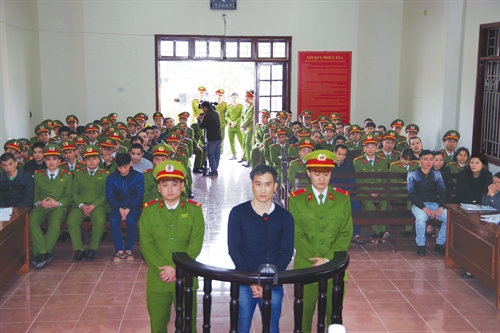 |
| Defendant Tran Duc Duy and his accomplices at the hearing on February 27 at Hoa Binh province’s People’s Court for their crimes of illegally trading in narcotics and illegally stockpiling military weapons__Photo: Vu Ha/VNA |
Exclusive jurisdiction
The exclusive jurisdiction of Vietnamese courts to settle civil cases and matters involving foreign elements means that only Vietnamese courts have jurisdiction to settle these cases. In other words, only a judgment rendered by a Vietnamese court over a civil case or matter of this group can be recognized and enforced in Vietnam. This does not mean that Vietnam denies the jurisdiction of foreign courts or the effect of their judgments. This only means that Vietnam does not recognize such judgment and enforce it in the Vietnamese territory. Therefore, parties to a case falling under the exclusive jurisdiction of Vietnamese courts have no choice but bringing their case to a Vietnamese court if they wish to have the judgment on their case enforced in Vietnam.
Article 470 of the Code specifies the following civil cases and matters which fall under the exclusive jurisdiction of Vietnamese courts:
1. A civil case involving the rights over a real estate located in the Vietnamese territory. This provision is logical because real estate is always attached to land and territory and therefore should be subject to the exclusive jurisdiction of Vietnamese courts.
2. A divorce case between a Vietnamese citizen and a foreign citizen or a stateless person if both spouses reside, work or live for a long term in Vietnam.
3. A civil case in which the parties are entitled to select the Vietnamese court to hear their case in accordance with Vietnamese law and they agree to select the Vietnamese court to hear their case. This is a fresh provision showing respect for the will of and agreement between the parties to civil relations.
4. A non-disputed claim arising from a civil legal relation specified in Clause 1, Article 479 of the Code. For example, a couple of one Vietnamese and one foreigner residing in Vietnam who divorce by mutual consent and agree on division of their children and property may request the court to recognize their divorce. This is also a novel provision compared to the 2004 Code.
5. A request for identifying a legal event occurring in the Vietnamese territory. For example, a request for determining the bankruptcy of an enterprise in Vietnam.
6. A declaration that a Vietnamese citizen or a foreigner residing in Vietnam is missing or dead or has a limited civil act capacity or has lost his/her civil act capacity if such declaration relates to the establishment of his rights and obligations in Vietnam. For example, a foreigner who is the director of a Vietnam-based company and resides in Vietnam goes missing in an accident. The representative of his company may request a Vietnamese court to declare him missing in order to get his rights and obligations considered and settled in accordance with law.
7. Recognition by the court that a property in the Vietnamese territory is derelict or recognition of the current manager’s ownership over a derelict property in the Vietnamese territory.
Cases in which jurisdiction remains unchanged
The complexity of civil proceedings involving foreign entities with different citizenships and overseas residences leads to the adoption of special rules for determining the jurisdiction to settle their civil cases and matters. The fact is that foreign elements are not expected to remain unchanged throughout the proceedings. Should the citizenship or residence of a party in a civil case already accepted for settlement by a Vietnamese court change, is it necessary to re-determine the court to settle this case?
To answer this question, Article 471 of the Code states:
“A civil case or matter involving foreign elements which has been accepted for settlement by a Vietnamese court shall continue to be settled by such court although during the settlement process there appears a change of citizenship, residence or address of a party or a new detail which makes such civil case or matter fall under the jurisdiction of another Vietnamese court or a foreign court.”
However, Article 472 of the Code lists a number of reasons for which the Vietnamese court will have to return a lawsuit petition or written request or suspend the settlement of a civil case or matter involving foreign elements it has accepted for settlement as such case or matter falls under the general jurisdiction of Vietnamese courts. These reasons include:
- The parties are allowed by law to select a method of dispute settlement and they have mutually agreed to select a foreign arbitrator or court to settle their civil case or matter.
This provision aims to respect the agreement of the parties and helps prevent unilateral breach by a party of their previous agreement. It also requires the Vietnamese court to respect the parties’ choice. However, the Vietnamese court may still settle a case or matter if (i) the parties change their mind to select a Vietnamese court for settlement of their case or matter, or (ii) their agreement on the selection of a foreign arbitrator or court is nullified or cannot be implemented or the selected foreign arbitrator or court refuses to accept the case or matter.
- The civil case or matter falls beyond the exclusive jurisdiction of the Vietnamese court and falls under the exclusive jurisdiction of a foreign court. Under this provision, if this case or matter is settled by the Vietnamese court at the request of the parties, the judgment made by the Vietnamese court will take effect only in the Vietnamese territory and will not be recognized and enforced overseas.
- The civil case or matter falls beyond the exclusive jurisdiction of the Vietnamese court and has been accepted by a foreign arbitrator or court for settlement.
- The civil case or matter has been settled by the foreign court with a judgment or ruling or by a foreign arbitrator with an arbitral award. The Vietnamese court will have to refuse to settle the case or matter once again. Only when the foreign court’s judgment or ruling or the arbitral award is not recognized by the Vietnamese court for enforcement in Vietnam, can the latter step in to settle the case or matter.
- The respondent is entitled to judicial immunity and does not express his will to waive the immunity. This is a very common international practice.-
